Sightsavers and GLIDE pioneer new ways to fight river blindness
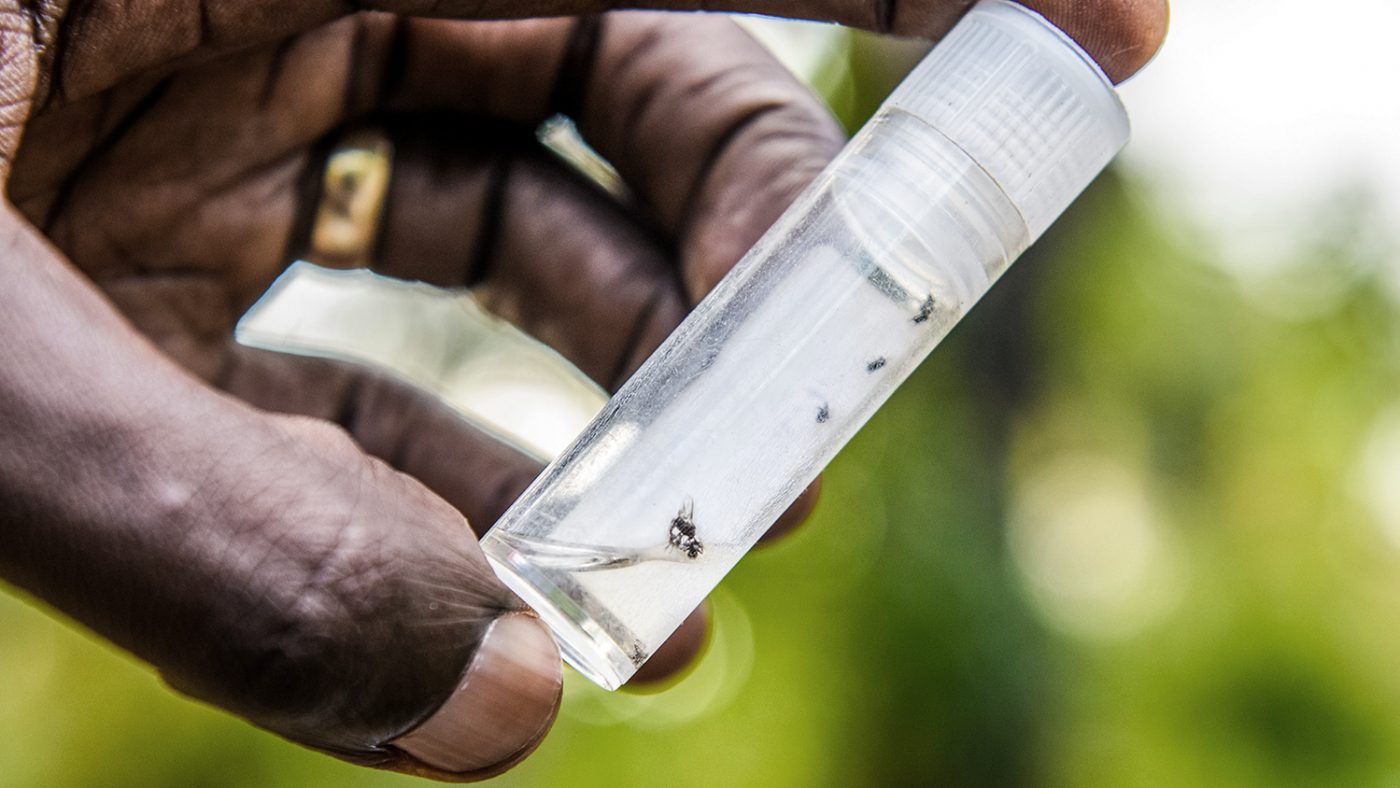
Sightsavers and the Global Institute for Disease Elimination (GLIDE) have united to help eliminate river blindness in Africa. This includes testing innovative ways to collect and analyse the flies that spread the disease.
River blindness is one of 20 neglected tropical diseases (NTDs) that affect more than a billion people around the world. It is spread by the bite of infected black flies, which breed near fast-flowing rivers. If left untreated, it can cause irreversible blindness.
Collecting and analysing black fly data has been challenging: at present, the only reliable way to monitor for infected flies is by using human ‘fly catchers’. Sightsavers and GLIDE will work with ministries of health and other partners to test safer and more effective methods of collection, such as using bespoke glue.
The project will run in two cross-border areas in Malawi/Mozambique and Ghana/Cote d’Ivoire, where traditional approaches have been unable to eliminate river blindness because of the frequent movement of people and flies across borders.
Sightsavers CEO Caroline Harper said: “River blindness can be eliminated, and our partnership with GLIDE is tackling some of the biggest challenges in getting there: coordinating work across borders, shortages of high-quality data, laboratory facilities and skilled technicians in the countries where they’re most needed. With better collaboration between endemic countries and across the global health communities, we can speed up progress and finally end the dreadful and avoidable burden of neglected tropical diseases.”
Sightsavers and GLIDE will also join other partners to roll out a new user-friendly platform, known as the Country Health Information Platform (CHIP), to help countries quickly access important data. This includes mass drug administration data and epidemiological survey results.
GLIDE CEO Simon Bland said: “Up-to-date and accurate data is vital for eliminating river blindness and other NTDs. Without good data, governments and partner organisations can’t direct efforts to where they’re most needed or be certain that people aren’t receiving unnecessary treatment. Innovation and collaboration is vital if we want to eliminate preventable diseases of poverty.”
CHIP is currently being developed and piloted in Cameroon, Democratic Republic of Congo, Guinea, Kenya and Malawi. From December 2021, it will be available to all African countries that submit data to the World Health Organization’s Expanded Special Project for the Elimination of NTDs (ESPEN) portal.
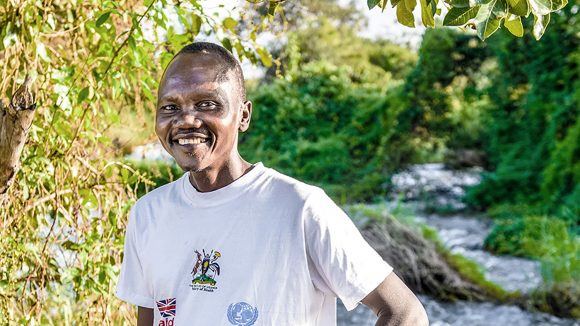
Okello’s story
To help win the fight against river blindness, Okello volunteers as a fly catcher on the banks of the Aruu river, near his village in northern Uganda.
Read Okello’s storyRead all our latest news stories
News from Sightsavers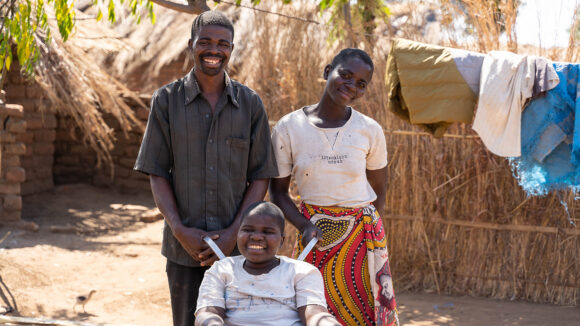
Sightsavers responds to report into FCDO’s work on disability inclusion
A report on the UK government’s development strategy and how inclusive it is of people with disabilities was published on Thursday 4 April.
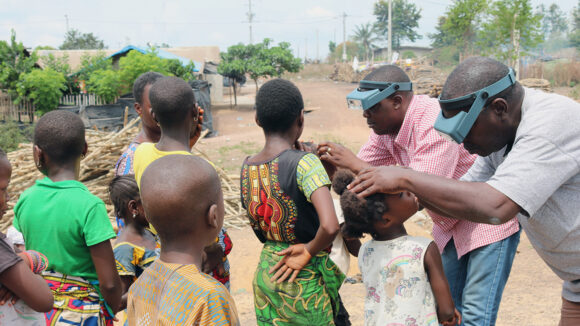
Sightsavers’ Accelerate programme gets US$36.5 million funding boost to banish trachoma
The extra funding from international donors will help speed up the elimination of trachoma in Africa by expanding and extending the programme.
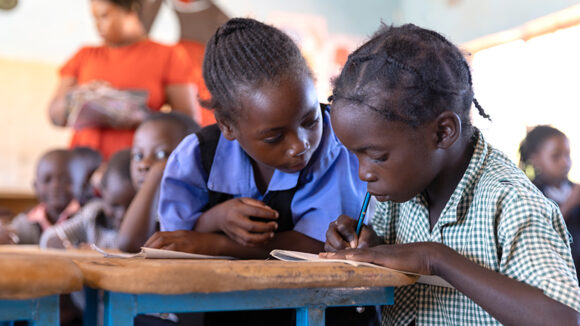
Sightsavers at the CIES education conference 2024
We're attending the conference in Miami on 6-14 March to share our expertise, engage with the education community and explore how we can transform inclusive education.